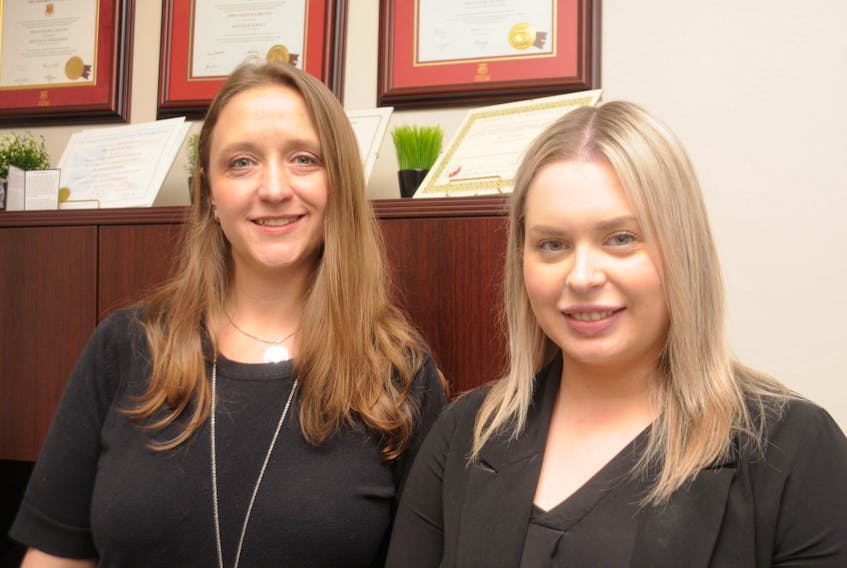ST. JOHN'S, N.L. — A new study focusing on sleeplessness and memory in the post-treatment phase for cancer survivors and those in remission is the biggest of its kind globally and happening at Memorial University in St. John's.
"Sleep is a big problem, but the other thing that's a big problem is what people would colloquially refer to as chemo-brain, which would be problems remembering where you put your car keys or the name of the person," explained Dr. Sheila Garland, a clinical psychologist who is also an assistant professor of psychology and oncology at Memorial. "People will say that this has really changed since they've finished their cancer treatment. They just can't think clearly anymore, they're foggy, and this is a big barrier to also resume what they would normally consider part of their routine day or routine life. It contributes to them taking a longer time not being able to return to work or doing their job differently, and it contributes to that persistent feeling that cancer has changed me.
"By treating their insomnia — getting them to sleep better — we're interested in whether that can actually improve their ability to pay attention, concentrate and remember things."
"By treating their insomnia — getting them to sleep better — we're interested in whether that can actually improve their ability to pay attention, concentrate and remember things." — Dr. Sheila Garland
Garland is the director of the school's Sleep, Health and Wellness Lab, which was formed in 2015 and has since completed a number of studies related to cancer and sleep issues. It has multiple ongoing projects, including ACTION (Addressing Cancer Treatment-related Insomnia Online in Newfoundland and Labrador).
The lab's goal is to find ways to treat sleep problems and improve the overall life experience for individuals dealing with cancer, from the point of diagnosis through to the post-treatment years.
"It is one of those foundational health behaviours that if you can make sure you're sleeping well or you can improve your sleep, you're going to impact everything else in your life," Garland explained. "So your mood, your physical well-being, your relationships, your work productivity. It seems like one of those areas that has a lot of bang for your buck. If you're sleeping well, a lot of areas are going to go much smoother."
Pre-existing problems
Garland said approximately half of cancer patients enter the diagnosis with pre-existing sleep problems and they're two to three times more likely to have these issues compared to the general population. Sleeplessness is also known to be an ongoing issue for cancer survivors.
"Estimates suggest 12 to 15 per cent of the general population would have a diagnosis of insomnia, and so you'd get 30 to 45 per cent of people who have been impacted by cancer would have a diagnosis of insomnia."
The reasons for this vary. There's an emotional strain placed on people from the point of diagnosis onward. This affects mood, which can lead to sleep problems. Cancer treatments can also contribute to sleepless nights, causing pain, breathing difficulties and hot flashes, and creating a need to use the bathroom in the middle of the night.
"Then you have the changes that happen when you're undergoing cancer treatment," Garland adds. "People start behaving differently. They would sleep-in in the morning. They would change their schedule on the weekends. They would do less during the day. All of those things can impact sleep. ... You take a general population that has problems sleeping. You add all these things on top of it and then you're got two to three times higher prevalence of insomnia, and then we're got a big problem, because we've got lots of people impacted by cancer in this province."
According to three-year averages compiled by Statistics Canada between 2009 and 2015, Newfoundland and Labrador consistently had the highest rate per capita of cancer incidents in Canada.
Ultimately, improving sleep for cancer patients and those who are in remission or cancer-free can have a considerable trickle-down effect when it comes to improving quality of life.
"If during treatment you can maintain good sleep, it's going to make it easier for you to tolerate all of the other uncomfortable or unpleasant things you have to go through," Garland said.

"Then once you've completed treatment, if you can get your sleep back on track or maintain good sleep, it's going to make it easier for you to resume your work, physically recover, emotionally recover and just get back to the kind of life you want to live."
Four-year study
The ACTION study is looking for 162 participants, making it the largest of its kind globally. An evidence-based treatment (cognitive behaviour therapy for insomnia) will be employed and offered free to those taking part — Garland adds this therapy isn't covered by MCP.
"Typically this therapy is delivered face-to-face in Newfoundland and Labrador. So we have a province that's only going to allow certain people to access it. We've taken that therapy and we've trained individuals to be able to deliver that therapy via video."
The online component would allow participants to take part from the comfort of their own home, thus removing barriers to access. There will be some initial assessments measuring sleep, concentration and attention capabilities, followed by seven individual meetings with a trained therapist. There will be follow-up check-ins with the participants three months and six months into the study.
The Canadian Institutes of Health Research is funding the four-year study. Given its duration, people who are not eligible now to take part could get involved at a later date and have their names added to a wait list. The Sleep, Health and Wellness Lab can also connect cancer patients with other service options.
"All they really need to do is reach out and let us know and we'll find them some way to get them help for their sleep," Garland said.
Twitter: CBNAndrew
How to be eligible
- Issues with memory, concentration and attention
- Trouble falling asleep or staying asleep
- Completed treatments at least 12 months prior to study entry (hormone or maintenance therapies acceptable)
- Considered cancer-free or in remission.
How to get involved
- For more information or to determine eligibility, contact Kathryn Dalton at 709-864-8035 or email [email protected].









